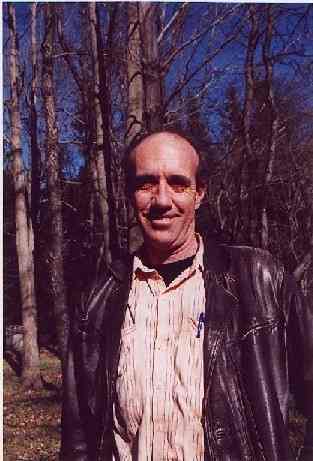MEMORY
"The pull of the future is stronger than the push of the past."
Leonhard Euler
We were in the car the other day, listening to the one of only two classical stations available to us. The DJ announced that the next piece would be Grieg's Piano Concerto and I automatically hummed the first few opening notes. This is probably not unusual for a classical music buff but I had no idea that this information was stored in my memory. I like classical music but I cannot say that I ever bothered to really learn who was who, etc. It really surprised and pleased me when the opening bars came and they were the notes I had hummed. I am still pleased and a bit excited to realize that something that I had known, the power of the inner mind, and that I use all the time in my hypnosis business, was actually true in a way that I had never suspected. The second part is that right now, in this moment, I have no clue what those notes are. So were did it come from?
One of the things that we tell a new hypnosis client is that the inner mind, what Freud called the Id, is the store house of every single experience we have ever had. Every thought, action, event, etc., is stored in there. This information is available to us but only on a very limited basis. It seems that the human mind has a very heavy set of filters that keep us from being overwhelmed by trivial or even important information. We don't remember things because we apparently do not need to. Or that is the way it seems to work. It would follow then that a person with a so-called photographic memory isn't really remembering things we would ordinarily forget, he just has selective recall of information that we also have but are blocked from accessing. In the hypnotic trance however; it is quite possible to access almost anything, probably including being able to hum the whole Grieg Piano Concerto, not just the opening bars. It also means that the innermost aspects of our beings, the truth of who we are is also available for access.
From the Sufi point of view, none of this really matters. It does matter that we heal our psyches but for a totally different reason then the one you may imagine. As the quote above implies, the future already exists. In all esoteric systems everything that ever was, is, or will be exists within the Celestial Dream of Creation. This is a tricky idea to hold in our minds but there is one way of seeing it that can be helpful. I was talking with a student the other day and I found myself saying something new. I said, "The Future Self looks at the present Self and says, 'We have to do something about that.'" In other words, the future Self remembers the present self and recognizes the things that the present self must do in order to become the best future Self that it possibly can be. It is not easy to think of memory as being fluid and existing in all the dimensions, all the time. And those who subscribe to predestination might say that there is really nothing they can do to alter what will be. But that is not true. The future Self exists yes but in the present we are determining the quality of that future Self. We are creating the future even though it already exists. This is the place where we separate the true mystics from the wanna-be's.
I am very fond of saying to people that spirituality is not about puffy white clouds and pink bunny rabbits. Lovely as that image is, it is wishful thinking. We cannot deny that life is a struggle and we are continually challenged to uncover an ever deeper means of observation that understands this struggle in an ever widening manner. It is like a spiral of awareness that continually grows – if we are truly paying attention. Or you can pretend that your particular way of seeing is the only right one and continually demand that the world conform. It should be obvious even to the most hide-bound New Age believer that that does not work. Therefore it might be a better expression of our potential to continually work on one's Self in service to the future Self that is looking back on the current self and remembering what could have been. How's that for a confusing sentence?
The future Self will have the very same filters that we currently have and may only remember small snap shots but deep in its psyche will be the programming that we are currently shaping in our deep desire to become who we really are.
Love & Blessings, Musawwir


